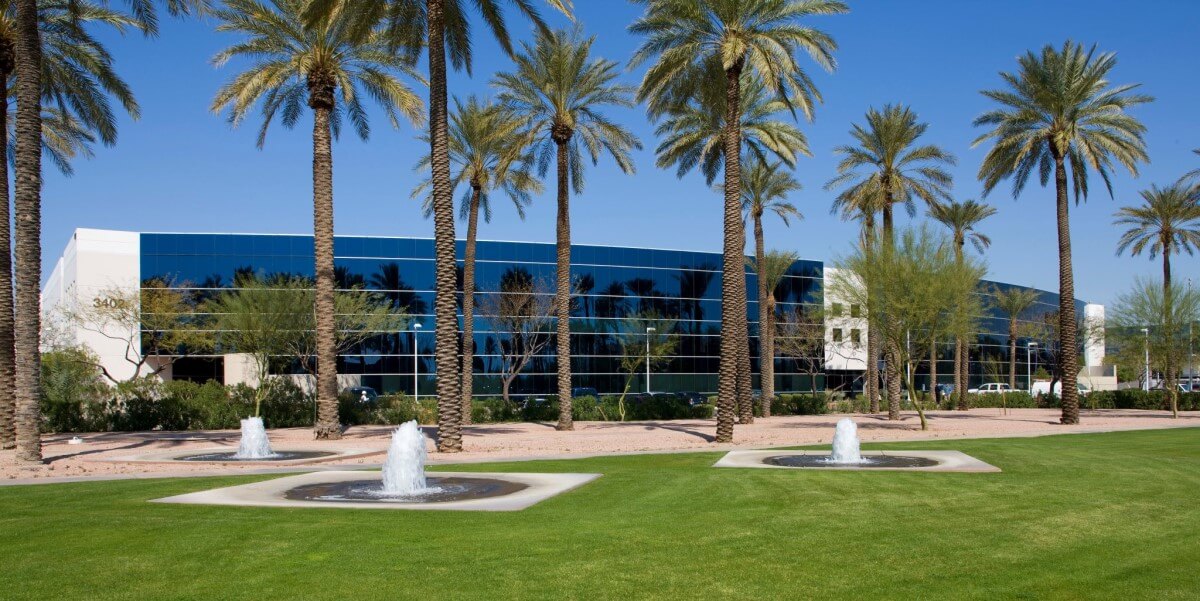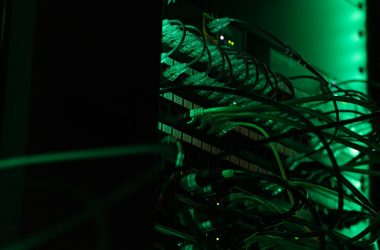

phoenixNAP is in the business of unmanaged hosting services, at a global scale. They do offer some managed services, but their focus is on unmanaged services and IaaS platform creation and provisioning. HostingJournalist.com sat down with phoenixNAP CEO Ian McClarty to talk about their specific position in the hosting market and their go-to-market strategies and experiences.
“One of the key differences between managed and unmanaged hosting is in the profile of an organization requiring the services. We are working with mid-size companies that typically do have IT teams and want more control over their IT platform. Managed hosting, on the other hand, does not require an organization to have a large IT team, as the platform is fully managed for them. These would typically be small businesses and organizations that are not focusing on online activities as much.”
phoenixNAP offers various products including dedicated servers, colocation, bare metal cloud, private cloud, cybersecurity solutions, and more. How complete is the portfolio and what type of client base are you aiming for?
“As a company focused on growth and innovation, we constantly expand our portfolio of services to meet the increasingly diverse IT needs. We can offer a fully managed cloud platform or provide some specific IT solutions. Our managed services portfolio, however, refers to managed infrastructure rather than outsourced IT platform with application support. It is typically required by companies that do not have large IT teams but that have very sophisticated IT requirements. On the other hand, we also work with companies that already have a comprehensive in-house IT but are looking to build a hybrid cloud it with our DRaaS, Backup, Colo, or security services. We are primarily working with mid-market companies that have an in-house IT team, but are lacking resources to implement and manage some more advanced technologies.”
What’s the importance of cloud, cloud security and hybrid cloud options on a global scale?
“Almost every organization today uses cloud in one form or another. Cloud strategies continue to be very important in companies of different sizes, especially as the market is maturing. The U.S. and Asia have always been the leaders in cloud adoption, while Europe lagged a bit due to privacy and security reasons. As the cloud evolves and technologies become more sophisticated, there are much less obstacles to its adoption. The current health situation also influenced the increased adoption as more businesses needed scalable IT resources to support e-commerce and work-from-home policies. One thing that does change are the individual cloud deployment and management strategies, especially when it comes to hybrid implementation. Today, we are seeing more of specialized cloud solutions and workload-optimized platforms that are built to support demanding workloads such as AI, IoT, ML/DL, et cetera. The cloud will continue to be important on a global scale and evolve as the demands change.”
In what sense are scale and company growth relevant to the specific marketing position of phoenixNAP?
“They do not have to be, but they often are. Companies that are growing rapidly or are planning on major geographical expansion often choose us because we can provision customized solutions fast and support their specific needs. We offer highly scalable solutions out of multiple global locations, which is essential for startup companies and businesses with aggressive expansion strategies. We also work with companies that have some very sophisticated technology requirements and require customized implementations. Thanks to our relationships with technology industry leaders, we can build workload-optimized solutions tailored to a particular organization’s needs. In that respect, the scale and company growth are not relevant as much as the type of workloads they are handling.”
Aiming for scale is inextricably linked to automation. Can you give some examples of phoenixNAP achievements when it comes to automation?
“Automation is indeed one of the top trends in the IT market and also a major focus for us as a company. The growing adoption of agile and DevOps methodologies is making automation increasingly critical for modern IT and this trend is only to grow in future. As we announced earlier this year, we will be launching a new cloud-native ready IaaS platform – Bare Metal Cloud, a solution specifically designed for organizations heavily relying on IT automation. Bare Metal Cloud allows for automated server provisioning on an hourly billing or reserved instances model. This enables quick setup and decommissioning of a physical server to help reduce go-to-market timeframes, facilitate implementation, and empower innovation. This model also provides an advanced cost optimization potential, making it easier for organizations to plan their IT budgets and maximize the use of IT resources. We believe Bare Metal Cloud will be a very well accepted platform in the DevOps community thanks to its automation features and performance potential. It is also integrated with some of the most popular DevOps tools and Infrastructure-as-Code platforms, which make it easy to manage it.”
How important is the company-owned network backbone for phoenixNAP’s global IaaS hosting proposition?
“A reliable network is critical to business success. Every organization relies on uptime and service availability, especially the ones offering solutions online. Recognizing their needs, we have built and are continually improving our global backbone to meet the demand for uninterrupted connectivity and worldwide reach. It is a part of all our product and service offerings, and we are constantly expanding it. Today, we can offer 2.35+ Tbps of connectivity between data our centers and multiple 10Gbps transit connections. We also have a wide carrier portfolio that our tenants and clients can use to improve their connectivity in different regions.”
When phoenixNAP expanded into Europe in 2012, were you able to transfer the U.S. proposition 1-on-1 to the other side of the pond? How did it differ from the U.S.?
“At that time, one of the differences between the two markets was the fact that the U.S. was already mature in terms of cloud services consumption and Europe was in its early stages of adoption. The primary reason we made the expansion to Europe is to support many of our clients that were looking to do business there. In the years that followed, we continued to build our presence in Europe by adding new network PoPs and enriching the portfolio of services offered. Although we have not really transferred the proposition 1-on-1, as not all of the services we offer in the U.S. are available in Europe, we do attract many businesses, especially with our dedicated servers portfolio.”
In 2017, a data center in Singapore was added to the phoenixNAP portfolio. In what sense does the Asian market differ from the U.S. and Europe?
“The Asian market is very similar to the U.S. market in terms of the demand for IT services. It is very dynamic and very aggressive sometimes with so many players in it.”
What role does the IT channel of MSPs, CSPs and systems integrators have for phoenixNAP?
“IT channel is very important for our company and we are working with some of the amarket leaders in technology services in the U.S. MSPs and CSPs are often closer to consumers and are more involved with the market in that respect. This is why we are always looking to build relationships with them and improve our product offering according to their feedback. In the other continents, IT channel is equally important for us, but our U.S. relationships are the strongest. As these are all global companies with presence across the world, we do not have any separate strategies for other continents.”
– interview continues below the photo –


What vendor partnerships are important to phoenixNAP’s services offerings today and why?
“We have multiple years-long partnerships that are key to our growth and innovation potential. One of the most important ones is Intel, which has been involved in our product offering and development for years. As a market leader focused on driving IT innovation, Intel helps us offer advanced solutions to the market. Last year, we collaborated to develop and offer a unique dedicated server platform with a vertical CPU scaling capability – FlexServers. Leveraging the 2nd Gen Intel Xeon Scalable processors and Intel Speed Select technology, we are able to offer the solution that changes CPU configuration with a simple reboot. This is one of the examples of our successful collaboration and we expect to continue working on similar projects with Intel in future.”
What aspects of the phoenixNAP business are you most proud of?
“Personalized approach, i.e. the tendency to work with our clients as part of their team rather than developing a client-vendor relationship; diversity of portfolio that helps us meet any IT need and develop custom solutions for companies that need them; expertise, which is something that has always been our focus. We are a people-company and our team is one of our greatest assets.”
What do you think phoenixNAP will look like in the market within, say, 3 to 5 years?
“That will largely depend on the market itself. We see ourselves as agile and adaptable, and we are always listening to the market when making business decisions. We do see us as a more dominant vendor in the dedicated servers and IaaS automation space for sure. Our Bare Metal Cloud solution and our collaboration with brands that are already familiar with the DevOps community will help us establish more presence in that space. We have recently been mentioned in Gartner’s 2020 Market Guide for Disaster Recovery as a Service as a representative vendor and we hope to establish an even better position in that market as well.”
About phoenixNAP and Ian McClarty
Founded in 2009, phoenixNAP is an IaaS hosting provider with data center locations around the globe – each with full service OpEx offerings and staffed to meet customer needs. The company’s services include dedicated servers, colocation, bare metal cloud, private cloud, cybersecurity solutions, and more. Ian McClarty is the Preseident of phoenixNAP.
To learn more about phoenixNAP, visit their website here.









